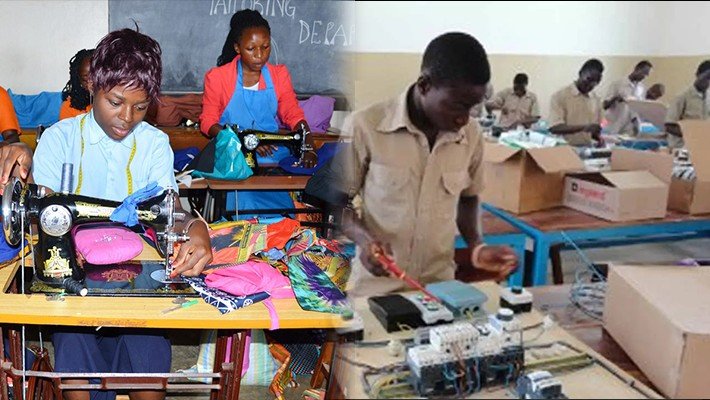The federal government has launched a new support initiative for technical college students in Nigeria, with each student set to receive a ₦45,000 monthly stipend.
According to TheCable, the policy was unveiled by Idris Bugaje, executive secretary of the National Board for Technical Education (NBTE), during a press briefing in Abuja. The move is part of a broader plan to boost the Technical and Vocational Education and Training (TVET) sector and attract more students to technical institutions.
Bugaje explained that the federal government will also fund students’ tuition and pay industry-based supervisors — referred to as “master class” instructors — who mentor students during industrial placements. Additionally, the cost of skill certification will be covered.
“With this, young people will find it more attractive to come to a technical college, acquire skills qualifications, get jobs locally and even beyond the borders of Nigeria,” Bugaje said.
He described the initiative as a major step toward reviving technical education in the country. He noted that Nigeria currently has only 129 technical colleges compared to over 15,000 senior secondary schools.
President Bola Tinubu has approved a ₦120 billion grant to support the TVET scheme. The grant will be administered through the Nigerian Education Loan Fund (NELFund). Bugaje clarified that the monthly ₦45,000 payment is a grant, not a loan, and beneficiaries will not be required to repay it.
To ensure the long-term viability of this initiative, the ministry of education is preparing a legislative bill aimed at creating a National Skills Fund. This would operate under a new Nigerian Skills Qualification Framework (NSQF), which is expected to be presented to the national assembly soon.
This nationwide push for skills development in Nigeria focuses on practical areas like carpentry, plumbing, ICT, renewable energy, construction, agriculture, and CNG vehicle technology — sectors where skilled workers are currently in short supply.
Technical colleges, vocational institutes, training centres, and apprenticeships at the sub-tertiary level are key parts of this renewed focus on vocational education.
Article updated 3 weeks ago. Content is written and modified by multiple authors.





